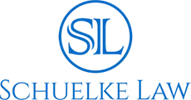
Improperly Trained Trucker Causes Accident


SHARE
FULL STORY
SHARE
Austin, TX (Law Firm Newswire) April 4, 2022 – It was early morning and the sun was just rising. Mr. Harris was headed to work
on Highway 183. There was a line of cars stopped. Mr. Harris was in a five-car line-up. An 18-wheeler hit the last car in the line-up. He did not see the cars soon enough to stop in the early and still dark dawn. He did not have his high beams on.
While the accident happened in 2016, and Mr. Harris was lucky enough to make it out of the crash alive, he has suffered from back and neck pain every day since the wreck. He now works for a construction company and the management makes sure he takes it easy and does not do any heavy lifting. He is permitted to take breaks when he needs them.
Mr. Harris won a settlement after filing a personal injury lawsuit against the trucking company. It was proven the trucking company did not train the trucker to use his high beams at night and in nighttime conditions, even though the driver only worked the overnight shift. The lack of training indicated negligence.
Cases like this may play out differently in the future should a new proposal in the Texas Legislature be passed. It would limit evidence allowed at a trial, making cases harder to win and trucking companies even more stubborn to settle.
A recent Federal Motor Carrier Safety Administration (FMCSA) report indicates Texas had 20.52 fatal crashes involving a large truck per million people in 2018. The FMCSA analysis also indicated that Texas had more fatal crashes involving large trucks than
more populated California.
House Bill 19 would mean evidence of negligence in hiring, training, or supervising drivers would not be allowed in the first phase of a new, two-phase trial process. The only evidence that could be used in the first phase would relate to driver fault and improper truck maintenance, leaving improper training to be shown in phase two, but only on the condition that the trucker was first found negligent.
Phase two would require proof of gross negligence, a higher legal standard requiring proof that a company “proceeded with conscious indifference” to safety. Proving gross negligence means a unanimous jury. The lower threshold needs only 10 out of 12 jurors to decide as such.
“This would give life to the expression ‘One and done’ and it’s over,” indicated Austin truck accident attorney, Brooks Schuelke, not involved in the case.
“If the bill gets passed, most cases would not make it beyond phase one because there would be no other evidence heard.”
“It should come as no surprise that insurance and trucking companies like this measure, and feel their industry is inundated with unfair lawsuits,” added Schuelke.
“It is a reality that there are far too many truck accidents that should not have happened.”
For those injured or killed in a truck accident, seek the experienced counsel of an Austin truck accident lawyer as soon as possible.
Learn more at http://www.civtrial.com
